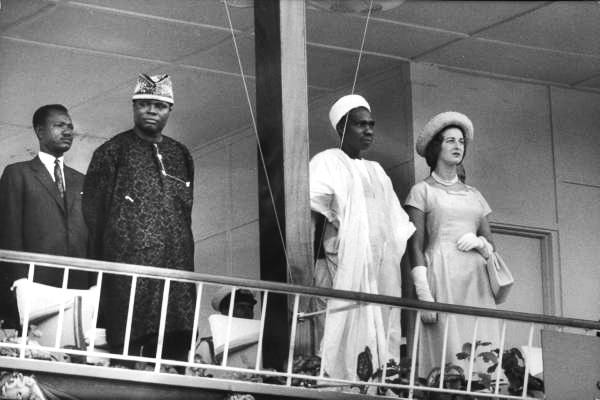Nigerian history considers the year 1960 to be a significant turning point because it was the year the nation attained independence.

Before that, Nigeria was a federation of various native West African tribes and a British protectorate.
In 1960, under the leadership of Tafawa Balewa, Fumi Ransom Kuti, lawyer Jaja A Wachukwu, and numerous other libertarians, the people sang a new song of liberation.
In the British parliament and on the streets of Nigeria, their songs of freedom resounded. In 1947, a representative was dispatched to present the topic in Britain. Independence was starting to resemble reality ten years later.
Nigerians began keeping track of the days until independence from Britain in 1959 because it seemed like only a matter of time. A year later, the official declaration of the heart of Africa’s independence was made.
Nigeria gained its independence during a period of protracted global unrest. In what would later be known as the cold war, proxy wars that when combined could start a new world war were already well under way. Political enlightenment reached a fever pitch, and civil rights organizations were all the rage.
While Nigeria fought for its independence, a lot of things were going on around the globe. Along with the independence of the giants of Africa, 1960 saw the occurrence of a great deal of crucial events.
Africa Business Insider presents the ten most exciting events that occurred in the world in 1960 in honor of Nigeria’s independence.
Independence: For African nations, the late 1950s and early 1960s were a time of liberation from colonial rule. It’s interesting to note that other African nations, including Cameroon, Senegal, Togo, Mali, Madagascar, the Democratic Republic of the Congo, Somalia, Benin, Niger, Burkina Faso, the Ivory Coast, Chad, CAR, Congo, Gabon, and Mauritania, also achieved independence in 1960.
Deepest exploration: The first men to reach a depth of 10,911 meters (35,797 feet) and the first humans to reach the lowest point on Earth were Swiss oceanographer Jacques Piccardinto and American Navy Lt. Don Walsh.
Additional success for racial integration At a segregated Woolworth’s lunch counter, four black students from North Carolina Agricultural and Technical State University began a sit-in. They are permitted to remain at the counter even though service is declined. Six months later, the original four protesters are given lunch at the same counter after the incident sparks numerous comparable nonviolent demonstrations throughout the Southern United States.
American physicists Arthur Leonard Schawlow and Charles Hard Townes are credited with creating the laser.
Angélique Kidjo was born on July 14, a famous Benin singer. She is the only native of Benin to receive a Grammy and is also an activist and singer-songwriter. Over the course of her career, she has won 5 Grammys.
TIROS-1: On April 1, 1960, the United States launched the first weather satellite, The Television Infrared Observation Satellite (TIROS-1), allowing television cameras to view the earth from space for the first time ever. As a result, real-time orbital video surveillance systems for meteorological
The European Free Trade Association (EFTA) is established: To promote economic cooperation in Europe, Austria, Denmark, Norway, Portugal, Sweden, Switzerland, and the United Kingdom establish the EFTA.
Ghana became a republic in 1960, and Kwame Nkrumah, one of Africa’s leading revolutionaries, switched from being prime minister to becoming Ghana’s first president.
In the 1960s Olympics, Muhammad Ali, who was then known as Cassius Clay, wins the gold medal in light-heavyweight boxing for the United States.
Patrice Lumumba is taken into custody by the soldiers of Colonel Joseph Mobutu. Patrice Lumumba was one of the most significant figures in the Congolese struggle for independence and later the premier of the Republic of the Congo. A year later, he would be murdered, making him a martyr for the Congolese uprising.
Diego Maradona was born on October 20th, making him one of the most electrifying and divisive football players in history. In addition to paving the way for up-and-coming players like Lionel Messi, the Argentinian also won nine club championships and the World Cup.








